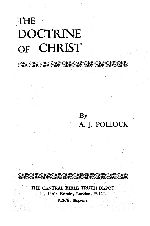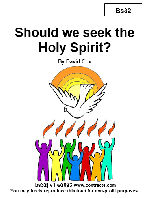Smith’s Literal Translation [SLT]
Summary
The Julia Evelina Smith Parker Translation is considered the first complete translation of the Bible into English by a woman. The Bible was titled The Holy Bible: Containing the Old and New Testaments; Translated Literally from the Original Tongues.
(This Bible version is not by the founder of Mormonism, Joseph Smith)
Julia Smith, of Glastonbury, Connecticut had a working knowledge of Latin, Greek and Hebrew. Her father had been a Congregationalist minister before he became a lawyer. Having read the Bible in its original languages, she set about creating her own translation, which she completed in 1855, after a number of drafts. The work is a strictly literal rendering, always translating a Greek or Hebrew word with the same word wherever possible. Smith accomplished this work on her own in the span of eight years (1847 to 1855). She had sought out no help in the venture, even writing, “I do not see that anybody can know more about it than I do.” Smith’s insistence on complete literalness, plus an effort to translate each original word with the same English word, combined with an odd notion of Hebrew tenses (often translating the Hebrew imperfect tense with the English future) results in a translation that is mechanical and often nonsensical.
In 1876, at 84 years of age some 21 years after completing her work, she finally sought publication. The publication costs ($4,000) were personally funded by Julia and her sister Abby Smith. The 1,000 copies printed were offered for $2.50 each, but her household auction in 1884 sold about 50 remaining copies.

Pollock Doctrine of Christ 2 John 1:9-11 is a single chapter work of 28 pages looking at different aspects of the Doctrine of Christ.
PDF: Pollock Doctrine of Christ
theWord: Pollock Doctrine of Christ
MySword: Pollock Doctrine of Christ
eSword: Pollock Doctrine of Christ
The translation fell into obscurity as it was for the most part too literal and lacked any flow. Jer. 22:23 was given as follows: “Thou dwelling in Lebanon, building as nest in the cedars, how being compassionated in pangs coming to thee the pain as in her bringing forth.”
Download
Download: Smith’s Literal Translation [SLT]

bs32 Should we seek the Holy Spirit? examines the question of seeking the Holy Spirit, or do Christians already have Him. This tract presents the argument that Scripture clearly teaches that God seals the believer at the moment of accepting Jesus with the Holy Spirit. If that is so (and we show these verses), then God cannot allow a person to (1) believe and be saved, but (2) not have the sealing of the Holy Spirit indwelling.
Topics: The Spirit in the Old Testament | The Transition between the OT and NT | The Earnest of the Spirit When do we Receive the Spirit? | To be Saved is to Have the Holy Spirit | The Guarantee that we are Saved | The Explanation of Luke 11:13 | The Indwelling of the Holy Spirit within us | There are Consequences of the Indwelling Spirit in us | The Sequence of Events.
Red the Tracts: bs32 Should we seek the Holy Spirit? .
MySwordmodules is a website dedicate to the MySword Bible Program for Androird devices. We host MySword Modules.
 .
.
Please help us keep this website up. We work hard to be a blessing to you. Donate to us. Even a $5 or $10 donation is greatly appreciated. All donations will go to pay hosting and domain fees.
You can use your PayPal account if you have one, or you can donate using any normal debit or credit card, pay through PayPal and chose just Debit or Credit Card.
